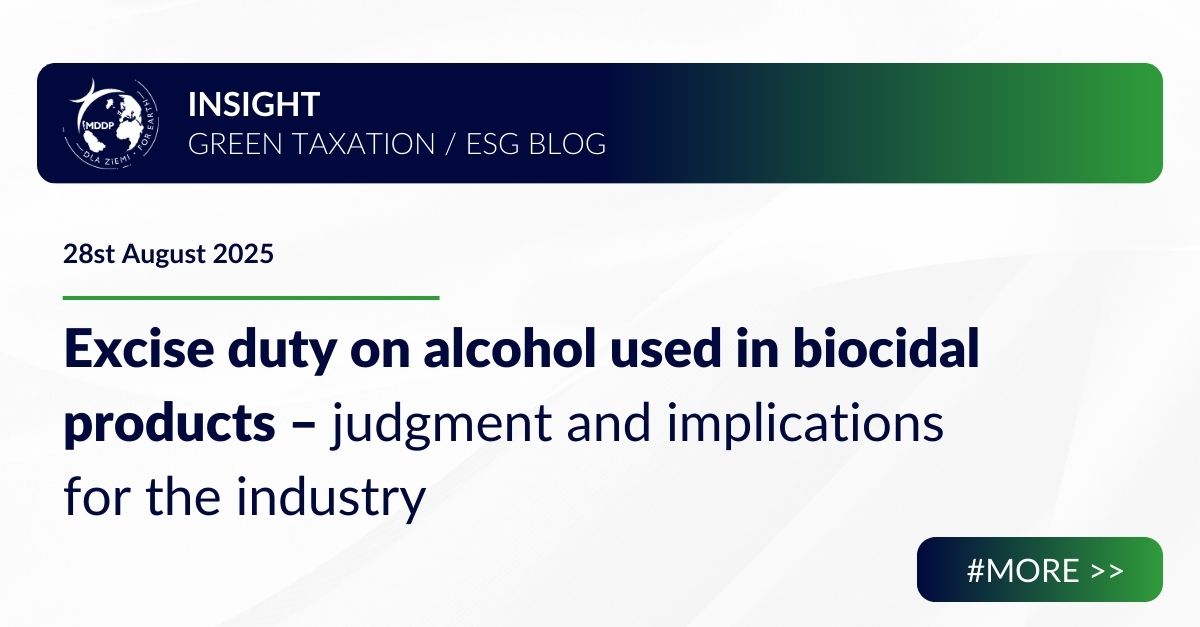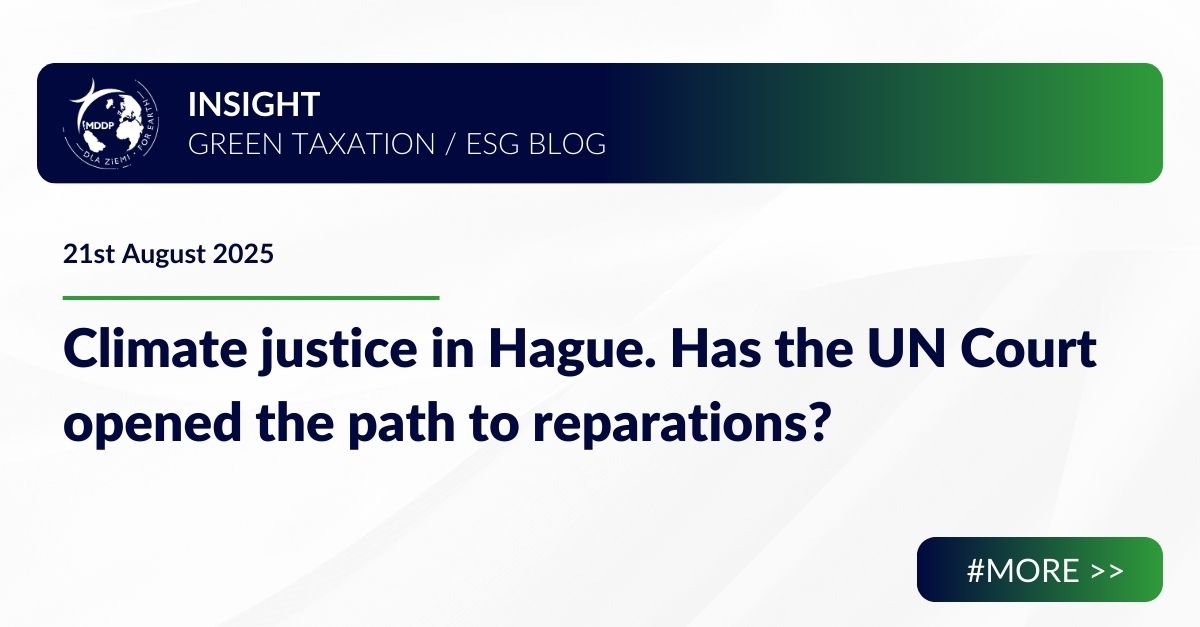
Excise duty on alcohol used in biocidal products – judgment and implications for the industry
The Voivodship Administrative Court in Gliwice, in a non-final judgment

Dynamic climate changes and increasing regulatory requirements are compelling companies operating in the European market to adapt their business strategies to the new realities. One of the most important tools supporting the transition towards sustainable development is the EU taxonomy – a classification system for investments and economic activities based on their environmental impact.
The taxonomy is a set of EU regulations that define sustainability criteria for economic activities and investments carried out within the European Union. These regulations are a key component of the European Green Deal and aim to establish a unified framework that enables an objective assessment of investments in terms of their environmental impact and compliance with ESG (Environmental, Social, Governance) standards.
Thanks to the taxonomy, entrepreneurs, investors and financial institutions can clearly determine whether their activities genuinely support the EU’s environmental objectives and minimise negative effects on the climate and ecosystems. The taxonomy also enhances market transparency by reducing the risk of greenwashing.
For an economic activity or investment to be considered sustainable under the taxonomy, it must contribute to at least one of the six environmental objectives:
To verify if a project meets the taxonomy requirements, so-called technical screening criteria are applied, which have been precisely defined for specific types of economic activities. These criteria are intended to allow an objective evaluation of whether a given investment makes a substantial contribution to one of the six environmental objectives while avoiding significant harm to the others.
The technical criteria include aspects such as:
A detailed set of technical screening criteria has already been adopted for the first two environmental objectives. The remaining four are currently under development, with specific requirements to be introduced soon.
Implementing the taxonomy poses a significant challenge for many businesses, particularly those operating in sectors with high environmental risk. The regulations may affect several areas:
Reporting obligations – companies covered by the taxonomy will be required to disclose activities that comply with sustainability criteria.
Access to financing – financial institutions and investors increasingly rely on taxonomy criteria when assessing projects, which may significantly affect access to capital and financing terms.
Tax incentives and preferences – some tax incentives in EU member states are expected to be linked to compliance with taxonomy principles.
It is also likely that in the future, taxonomy-related obligations will be extended to additional sectors and entities. Therefore, businesses should begin preparing for the potential implementation of new regulations, including assessing whether their operations align with taxonomy criteria.
The Omnibus package does not represent a withdrawal from the Green Deal’s objectives regarding ESG reporting. On the contrary, ESG reporting and the taxonomy remain a priority on the EU regulatory agenda. The changes are primarily aimed at optimising and adjusting the framework to make the reporting obligation less burdensome for businesses.
We specialise in sustainability advisory services and investment taxonomy. We closely monitor regulatory developments and their impact on business operations in Poland and across the EU.
Our services include:
Contact us to find out how we can help your business meet the requirements of the EU taxonomy.

Partner | Tax adviser | Legal counselE: monika.dziedzic@mddp.plT: (+48) (22) 322 68 90

Partner | Tax adviserE: rafal.kran@mddp.plT: (+48) 693 290 919

The Voivodship Administrative Court in Gliwice, in a non-final judgment

On 23 July 2025, the International Court of Justice (ICJ)

Work is underway on a new regulation by the Minister